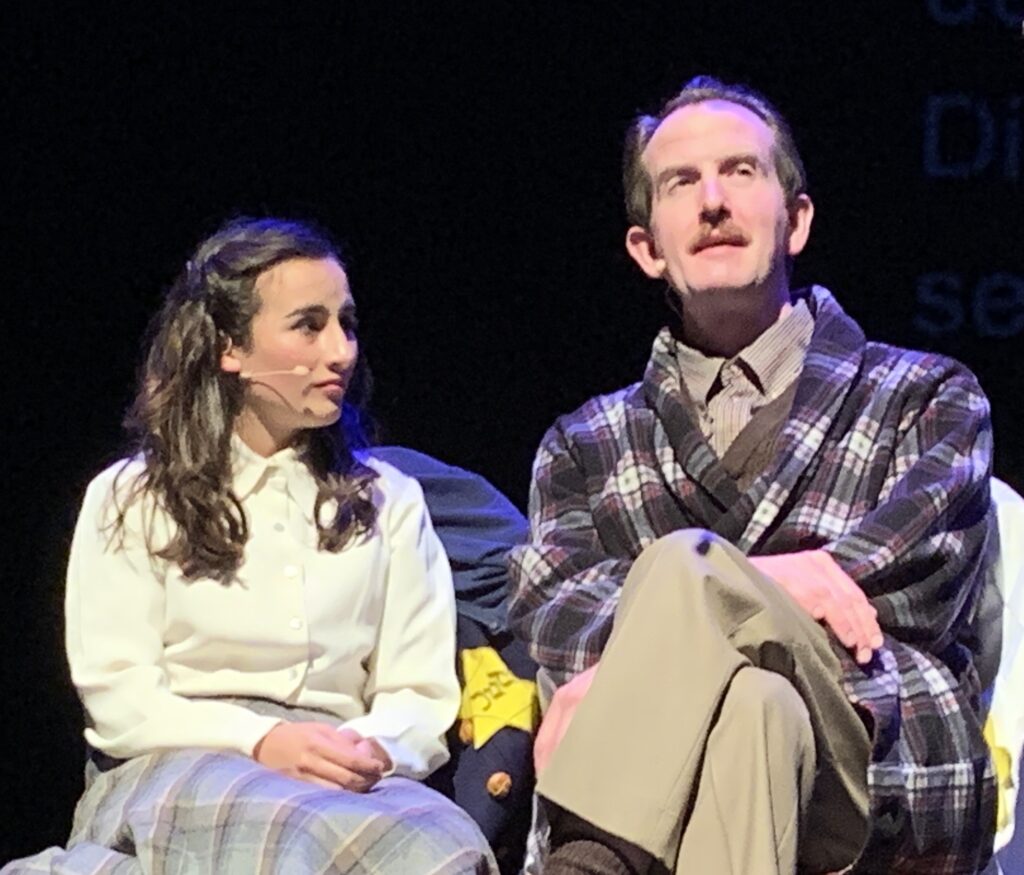By Taylor Conley
While most Tempe Prep teachers were busy teaching classes on campus during February mornings, Mr. Sanderson was busy acting in a play.
TPA’s drama teacher, Mr. Sanderson recently acted in “The Diary of Anne Frank” at the Scottsdale Center for the Performing Arts.
“The Diary of Anne Frank” shows Anne Frank’s life while hiding with seven other people in a cramped annex for almost two years. Anne was a Jewish girl living in Amsterdam, Netherlands, during World War II. She was just 13 years old when she and her family had to hide from Nazis to escape persecution.
The play was produced specifically for students by the Jewish Ensemble Theater. As a member of the Actor’s Equity Association, a labor union for live performers, Mr. Sanderson was notified of an audition and decided to try out for a role.

After an audition and a callback, Mr. Sanderson got the part of Anne’s father, Otto Frank, who provides a stabilizing force in the tense space of the secret annex. Because of the despairing nature of “The Diary of Anne Frank,” Mr. Sanderson had to fully exert himself emotionally to grasp the circumstances of his character. Mr. Sanderson immersed himself in the grim themes of the play. For instance, when he delivered the closing epilogue, he informed the audience that everyone from the annex was killed in concentration camps except Otto.
Mr. Sanderson noted that imagining he was living in the circumstances of Otto Frank was emotionally draining. However, despite the challenges, Mr. Sanderson said, “I’m really glad that I did it because even though it was emotionally draining, I think it’s a really important play and a really important story.”
“The Diary of Anne Frank” had a fairly short rehearsal process and ran for two weeks until Feb. 11, so Mr. Sanderson had to act a lot in a concentrated amount of time. On one occasion, he did the play every day for eight days in a row.
Since “The Diary of Anne Frank” was only performed in student matinees during the school day, seeing the young audience’s reactions was particularly fascinating. As the high school and middle school-aged students laughed at two characters’ flirty dialogue, Mr. Sanderson sometimes worried that they were not focusing enough on the most dreadful parts of the story. And surprisingly to Mr. Sanderson, many from the audience did not know about the ending of Anne Frank’s story. He said that when he announced Anne died “there were a lot of gasps.” He added, “I think there’s a growing concern among people of my generation or older that not enough people are taught about the Holocaust.”
Combating antisemitism was one of the principal motives for the Jewish Ensemble Theater to produce the play. Even the American Jewish Committee’s 2020 State of Antisemitism in America Report said that “American Jews—who make up no more than 2% of the U.S. population—are the targets of nearly 60% of religious bias crimes.”
Evidently, these circumstances have propelled actions like that of the Jewish Ensemble Theater, which also created a curriculum for middle-school students about the Holocaust. This curriculum ensured that the students were fully educated about the topic before they watched the show.
Reflecting on his experience, Mr. Sanderson said, “I feel very lucky that I got to do a play that I felt needed to be done. It’s not every day that you get to do a play that you feel like is not only artistically fulfilling, but is sort of an act of service to your community.”